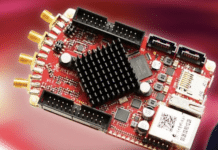 This is a good year for IT professionals with a number of new jobs in emerging technologies like Big Data and Analytics, and Social Mobile Analytics and Cloud (SMAC) as employers look to strengthen their technological force.
This is a good year for IT professionals with a number of new jobs in emerging technologies like Big Data and Analytics, and Social Mobile Analytics and Cloud (SMAC) as employers look to strengthen their technological force.
If we were to believe the reports by Dice.com and Linux foundation released in mid Feb, 2014, this year will be a high octane year for Linux professionals and aspirants particularly. Thus it only makes sense to be future-ready and find out about the details of career opportunities such as that of a Linux administrator.
Dice.com, the leading job site for tech professionals and Linux Foundation did a comprehensive survey to find out about the advantage Linux professionals have in the current technology landscape. The findings were heavily skewed in favor of those who are looking for a good job opportunity on Linux platform.
While seventy seven percent of hiring managers surveyed consider hiring Linux talent as one of their top priorities (up from 70 percent in 2013), 64 percent of professionals chose to work with Linux owing to its ubiquitous nature in the present day technology infrastructure. More than nine in ten recruitment manager is planning to hire a Linux professional in the next six months. This demand is surely going to translate in form of a lot of interview calls from employers. Most hiring managers also agree to the fact that it is rather difficult to find experienced professionals, and those who have the right mix of skills, knowledge, certifications and experience are being aggressively recruited.
Why Linux administration?
The findings of this report make it clear that Linux professionals are amongst the most sought after in the current tech market. However, a more interesting finding of the report is that amongst all the skills, the hiring managers are most actively seeking system administration, with 58 percent confirming they were on look out of professionals with good system administration skills. The reason is quite simple. There aren’t too many good system administrators out there, which is also driving the salaries of system admins northwards.
Getting started in Linux administration
Armed with all this data, it wouldn’t come as surprise if you decide right away to pursue a career in Linux administration. So, how do you become a pro Linux system admin? Well, the right mix of certification, education and experience will obviously land you the perfect Linux job, but if you are clueless about a place to start, then a degree in computers is what you should be looking at. This could be B.Tech with Computer Science or IT as specialisation or Bachelors in Computer Application or even a Bachelor in Science with IT as specialisation will do. This would actually make you familiar with the various aspects of computer science as a subject, likes of programming, hardware, and software. This understanding would come handy in the advancement of your career, when you climb the next ladder through certifications.
Certifications
It is widely believed that IT certifications do help one in career advancement. However, it ultimately boils down to selecting the right certification to gain the maximum RoI. There are many Linux based certifications, the most famous of which is Red Hat Certification Program, which teaches general Linux related skills along with specific system administration skills.
In addition to the vendor sponsored certifications, there is a vendor-independent Linux Professional Institute Certification offered by Linux Professional Institute, a non-profit organisation based in Toronto, Canada.
These exams can be taken by anyone irrespective of their nationalities. The LPI programs have three level hierarchies that include LPIC-1: Junior Level Linux Administration, LPIC-2: Advanced Level Linux Administration and LPIC 3: Senior Level Linux Administration. In order to be considered seriously for any system administrator job opportunity in one must possess at least one of the above described certifications. The LPI also has partnerships with SUSE, which is the vendor for a famous enterprise operating system going by the same name. CompTIA, which is a global IT certification agency also provided a Linux+ certification which was phased out after an agreement between LPI and CompTIA.
Salaries and Benefits
The compensations for Linux administrators are generally on the higher side. As per PayScale, the annual median salary is around INR 3 lacs for entry level professionals (as updated on 27th March, 2014). With experience, there is an exponential increase in the salary levels as individuals with 5+ years of experience getting annual packages in seven figures.
Well, with the grass being greener for Linux professionals this year, you won’t get a better opportunity or time for pursuing career as a Linux system administrator.



































































